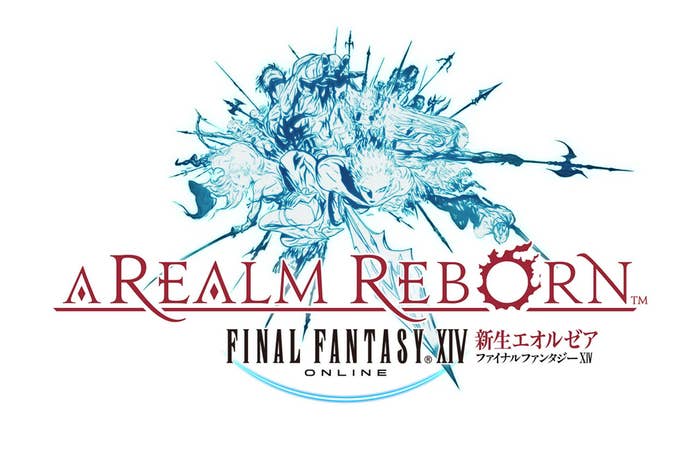
Everyone agrees that Square has mismanaged Final Fantasy, its iconic series and cash cow, over the past decade. But I'm not sure anyone has fully figured the scale of this failure, and I think to get a sense of this scale we need to think outside of gaming. So I'd like you, as a thought experiment, to imagine the following:
In 2016, Apple, outwardly robust but desperate for a new killer product after the monumental success of Google Glass, rushes to market the iGlass. Longtime Apple fans are a little skeptical, but the general sentiment before launch is excitement; what can a company with a track record of excellence and quality do in a novel product category?
Then iGlass comes out and it's a disaster. Basic functions don't work. It's difficult to use. It looks weird and bad. And it's not just second to Google Glass: It lags behind almost every other competitor. After a year of unrelenting bad press and consumer scorn, Apple announces that it is going to pull iGlass from the market, recall every existing unit, and work on it for a year to make it better.
But even as Apple works on the iGlass "reboot," its cash cows, iPad and iPhone, have started to suffer. New iterations take too long to come out and ignore the things that drew customers to them in the first place. Apple fanboys, beset from all sides, wonder why the company doesn't focus on fixing the products that made the company great. That "i" has lost much of its meaning.
Two years pass. Finally, Apple is ready to release the new iGlass, which it has decided to call "iGlass: A Vision Restored." Of course, by 2018, the shape of the market has changed, and the companies that were first successful in the market have moved onto new and exciting designs. When "A Vision Restored" comes out, it is a competent product that would have been attractive had it hit the market four years before.

This would never happen, right? No leading company, let alone one as smart as Apple, could possibly be stupid enough to release a totally broken product while letting its core competencies and brand associations atrophy into irrelevance, right?
And yet this is, of course, what Square has done with their flagship Final Fantasy series over the past five to ten years. In the context of the game world, the series is regarded with great sadness as a dying entity, and fair enough: The games were once superlative. In the context of the rest of the world, Square's mismanagement of the property is so staggering that only preposterous analogies give the proper perspective.
Ten years ago, Square was synonymous with perfectly polished, standard-setting products in the single-player role-playing space. From 2002 to late 2003, eager for a piece of the then-exploding MMORPG market, they rolled out Final Fantasy XI, their first massively multiplayer game. XI, which was heavily indebted to the original Everquest, then the most popular MMO, was a success, though it felt archaic as soon as Blizzard brought out World of Warcraft.
Square's follow-up MMO, Final Fantasy XIV, "iGlass" in the Apple analogy, was an unplayable ruin. Even in 2010, when the game came out, the idea of releasing a big-budget second-generation MMO into what was a crowded and mature market was a poor one. Even if the game had been good, it was probably a losing proposition. Instead, Square released a game so bad, it was news, described by some as the worst MMORPG ever made. Final Fantasy XIV was so bad that in November of last year, Square literally shut the game down.
At the same time, as Chris Kohler has written in agonizing detail for Wired, Square began to release mediocre and then finally bad mainline Final Fantasy games, even as it spread the market thin with remakes and re-releases. Whether this was a case of diluted talent or mission creep, a company known for extremely high standards of quality and innovation became a blundering embarrassment.
Later this month, Square is pushing out a game called Final Fantasy XIV: A Realm Reborn, which is its do-over. It boasts better graphics, a new user interface, and "Female Hyur Highlanders." It's also immediately irrelevant and a terrible idea. The writing on the wall reads clearer and clearer for the kind of MMOs that have been popular for the past decade. World of Warcraft, the genre's billion-dollar behemoth, has lost 600,000 subscribers in 2013 thus far. The rise of free-to-play MOBAs and the promise of massively multiplayer games in the near future that fundamentally change rules of the genre mean that A Realm Reborn will have little to offer for the MMO audience beyond a badly tattered brand. It's a revision to a product no one asked for by a company that hasn't released a good iteration of its iconic brand in seven years.
Credulous game writers are hoping that the forthcoming Final Fantasy XV, which has been in development for a humorously long amount of time, could be Square's moment to resuscitate the brand and bring it back to dominance. Expecting that from a company that has been running its flagship ashore for a decade is a fantasy.
